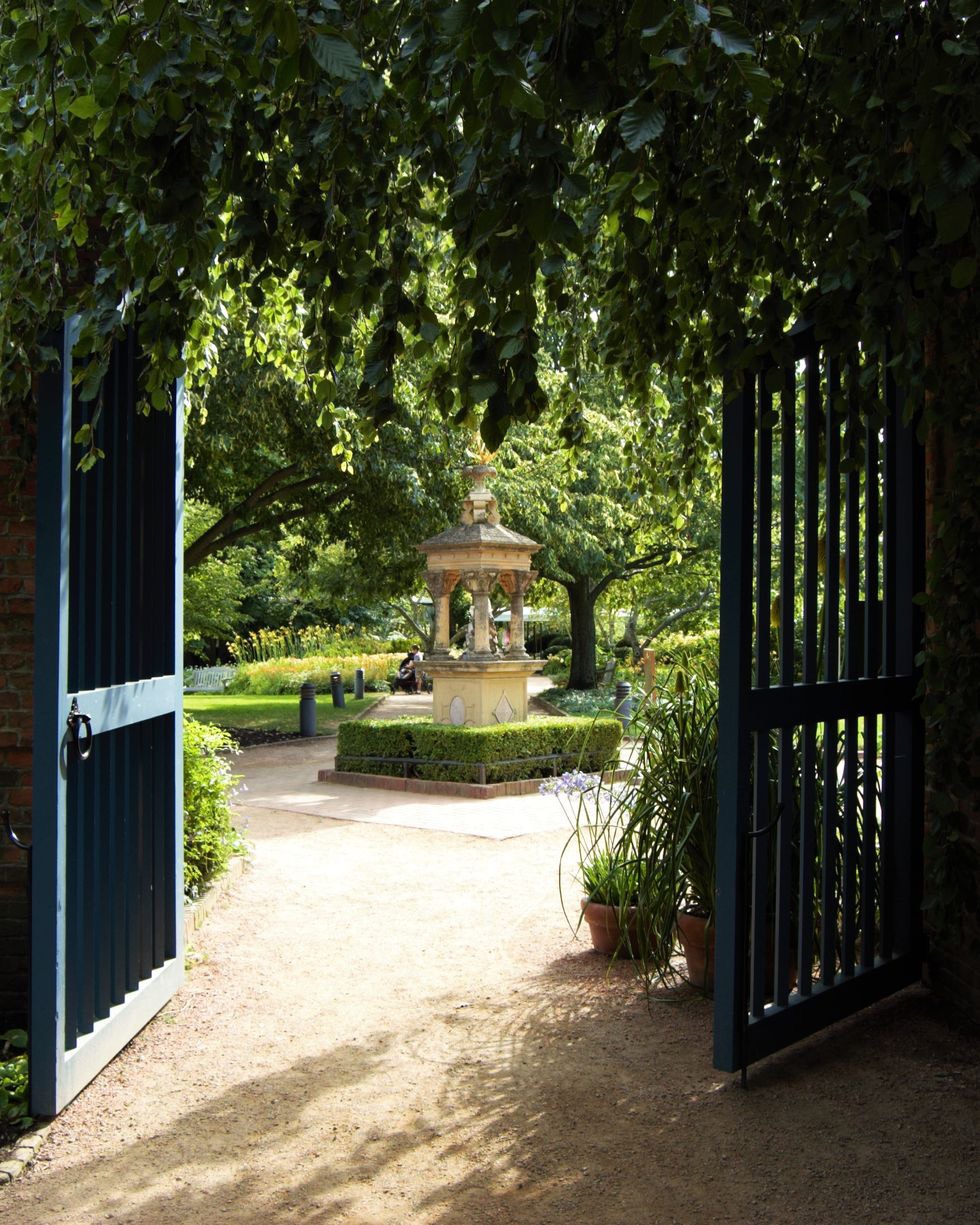
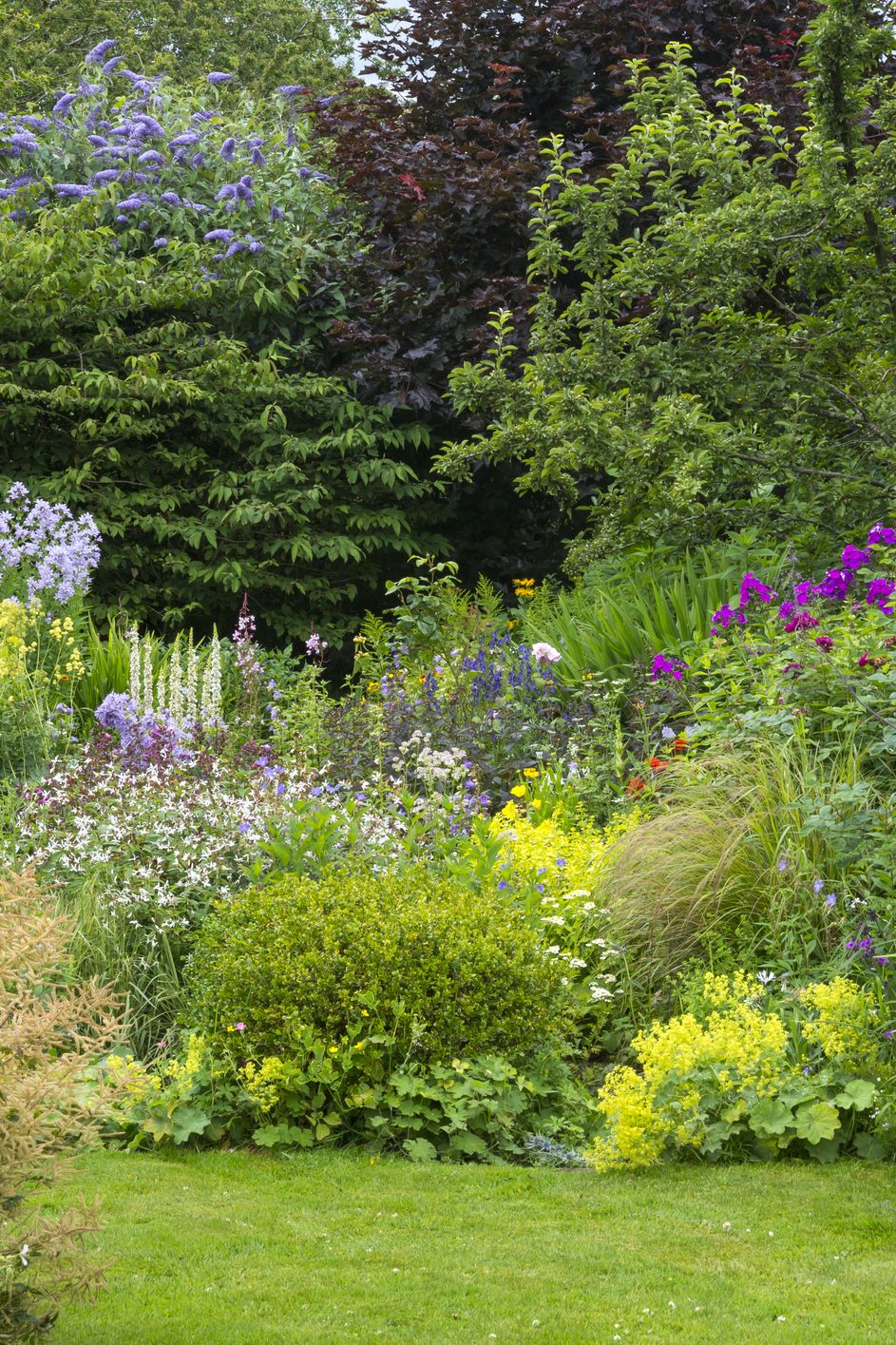 Getty Images
Getty ImagesTall plants, short plants, pink flowers, white flowers—all of these things can be placed next to one another in an English garden. Of course, you’ll have to make some adjustments to ensure that all of your plants have access to sunlight and aren’t too crowded, but in general, it’s best not to overthink a garden like this one and instead to opt for a free-flowing plan.
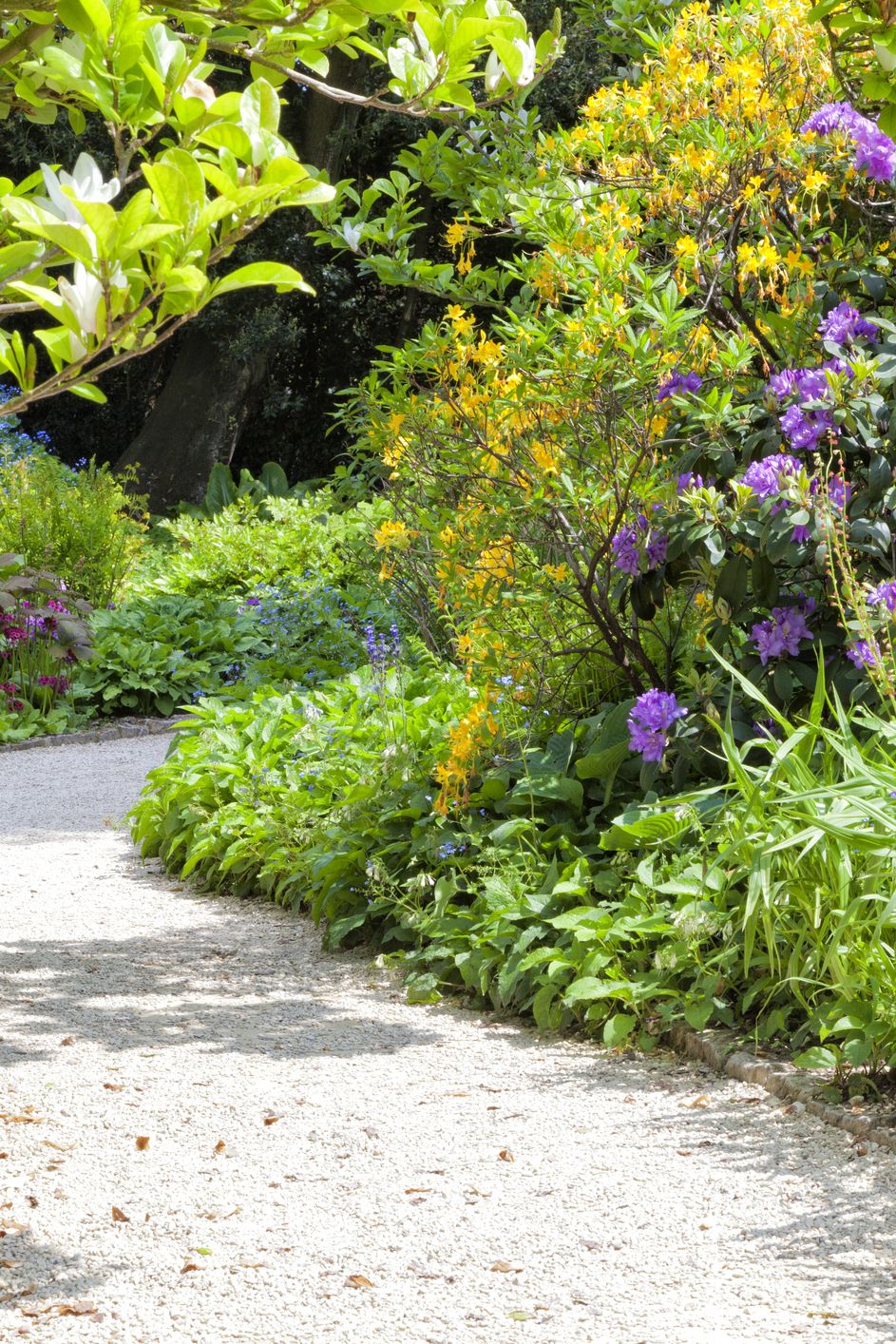 Getty Images
Getty ImagesAt first glance, a garden path might seem like too much work. But actually, it couldn’t be simpler to source and lay the right one for your garden—and the payoff is big. Not only will you give yourself an easy route in and out of the space, but you’ll also be afforded the luxury of watering your plants without having to step into tall grasses or get your shoes muddy. It’s a win-win!
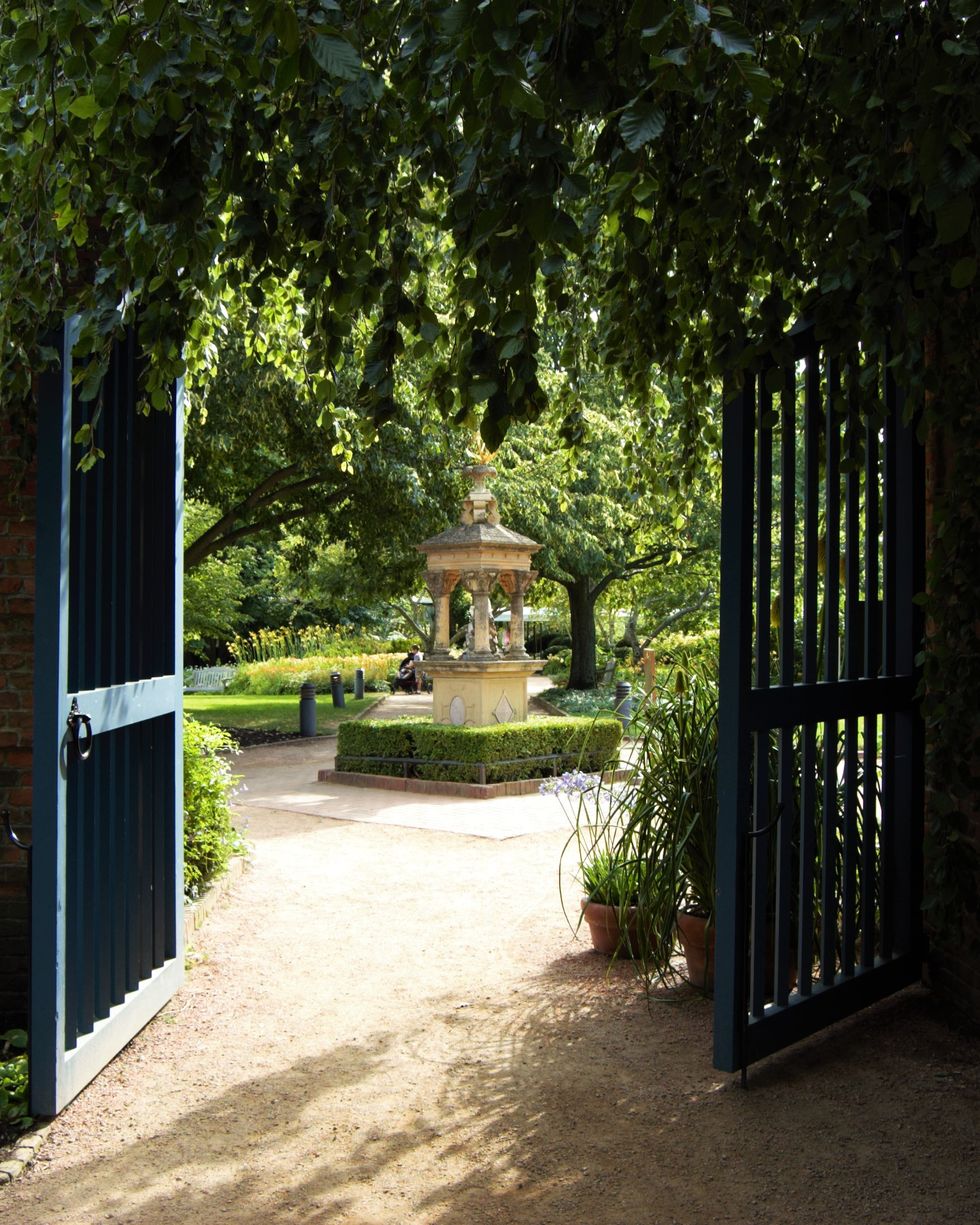 Getty Images
Getty ImagesThere are few things more magical in an English garden than a simple gateway. They’re easy enough to purchase and install, and the visual impact is huge. Don’t have a wall into which to install your new structure? You can also buy stand-alone designs that can be surrounded by simple bushes and vines.
Advertisement – Continue Reading Below
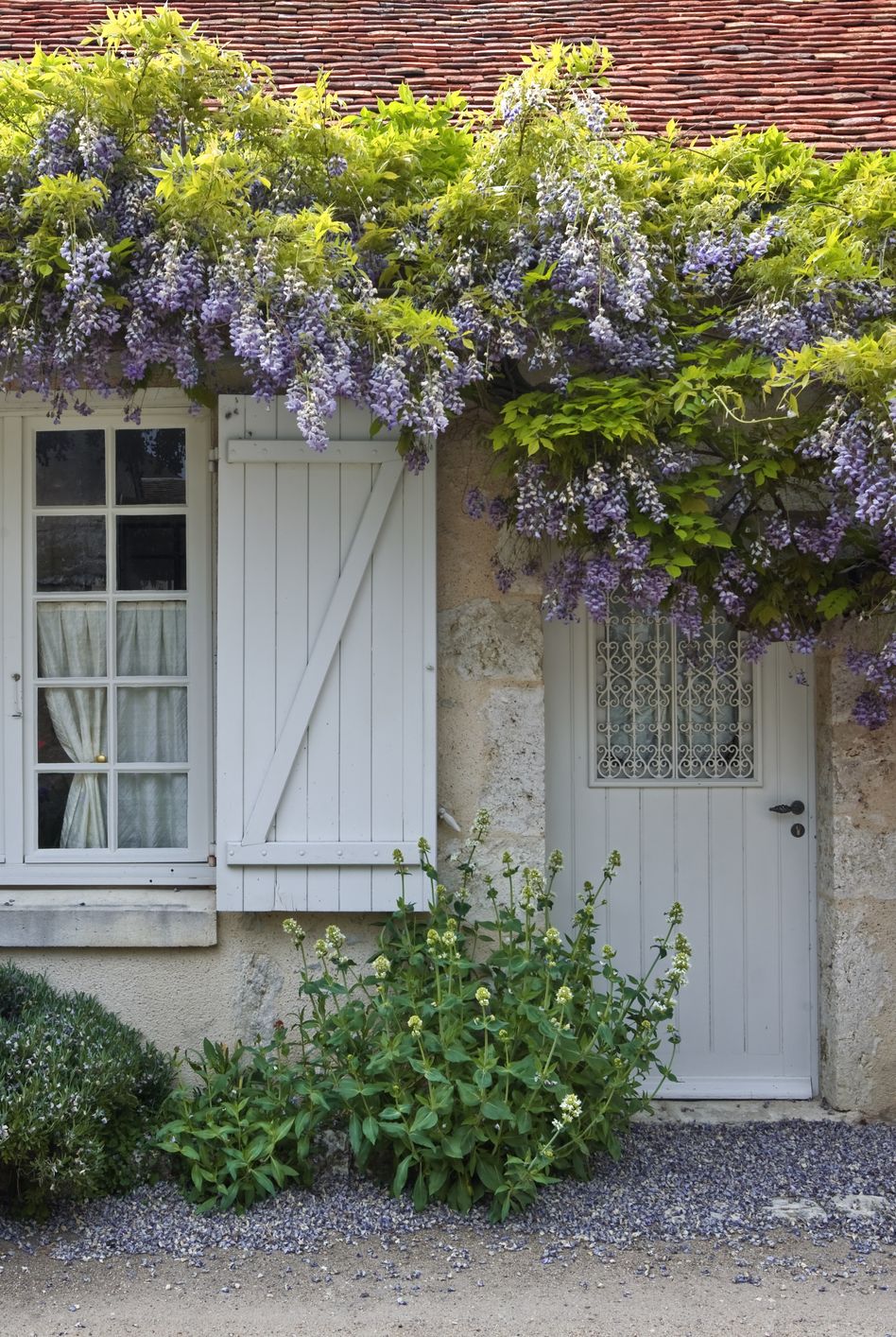 Getty Images
Getty ImagesIt’s not just about what’s on the ground! Be sure to think about the “y-axis” of your space as well. Consider adding a trellis or simply twisting ivy, draping wisteria, and high-flying vines around a shed or other already-existing structure.
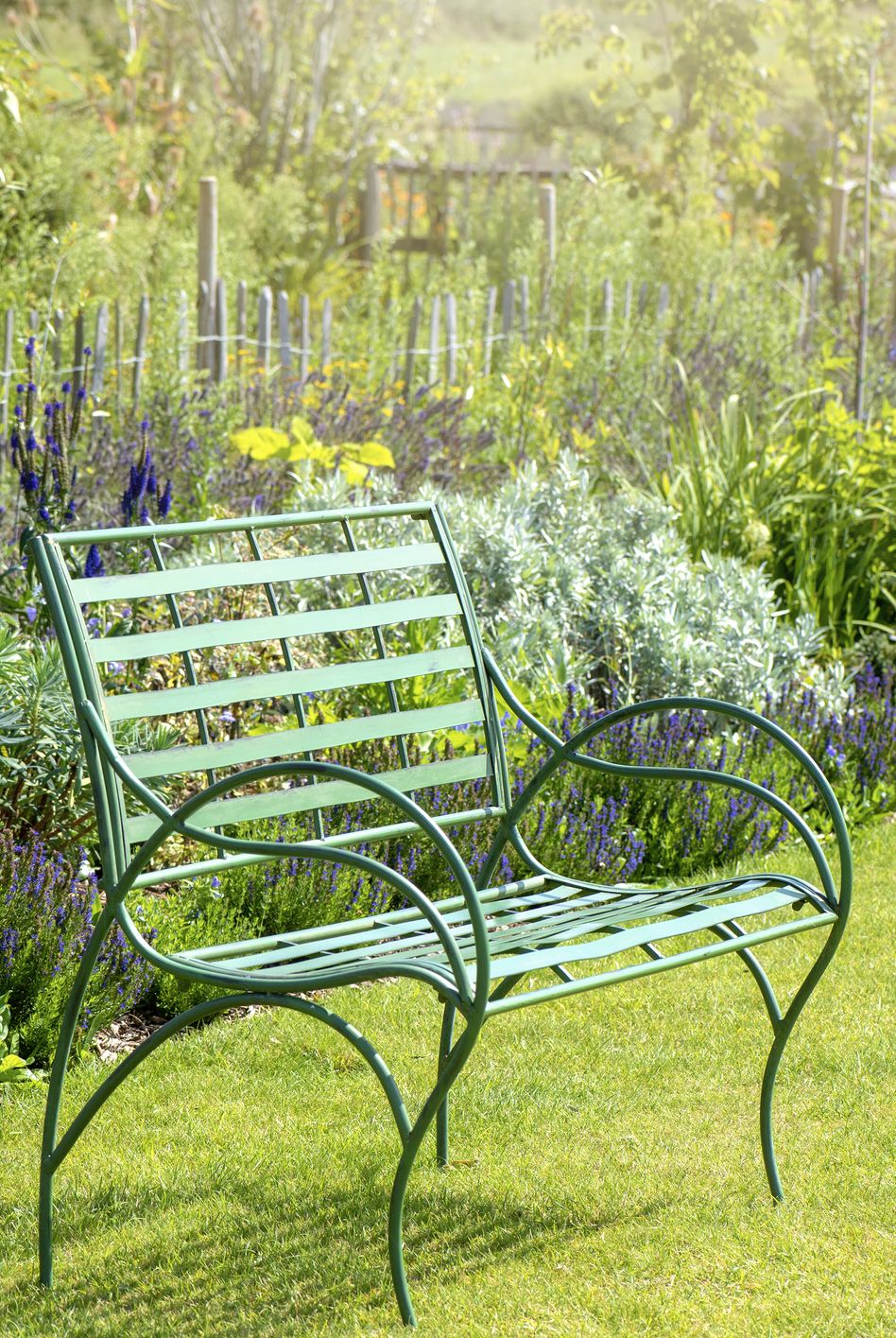 Getty Images
Getty ImagesEnglish gardens are meant to be enjoyed and savored, which is why they often include benches. What better way to sit and take in all the beauty around you? Wooden, stone, and metal structures all work beautifully in these spaces.
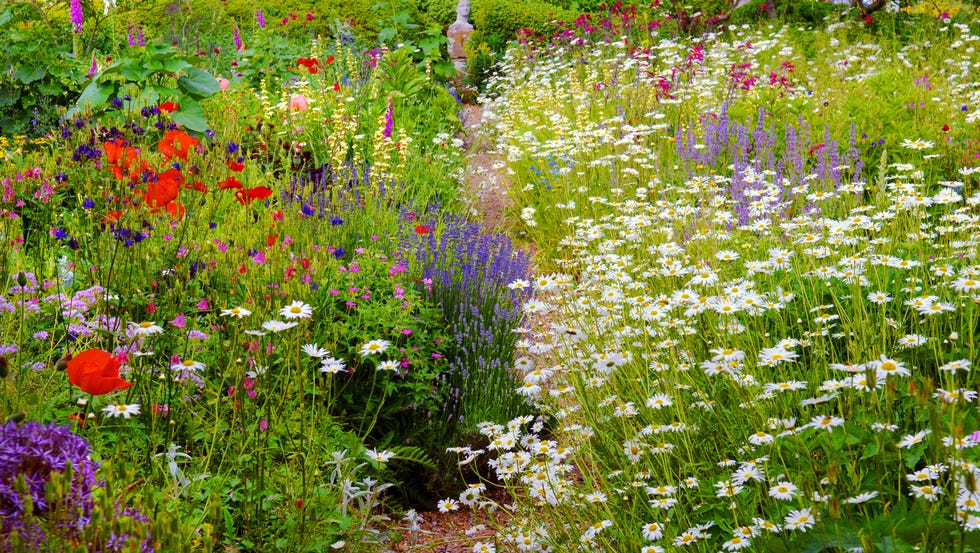 Getty Images
Getty ImagesPlant of variety of flowers—roses, lavender, delphinium, and other colorful options—close together to replicate garden you’d find in the countryside. A dense and rich garden with plenty of character is what you’re after.
Advertisement – Continue Reading Below
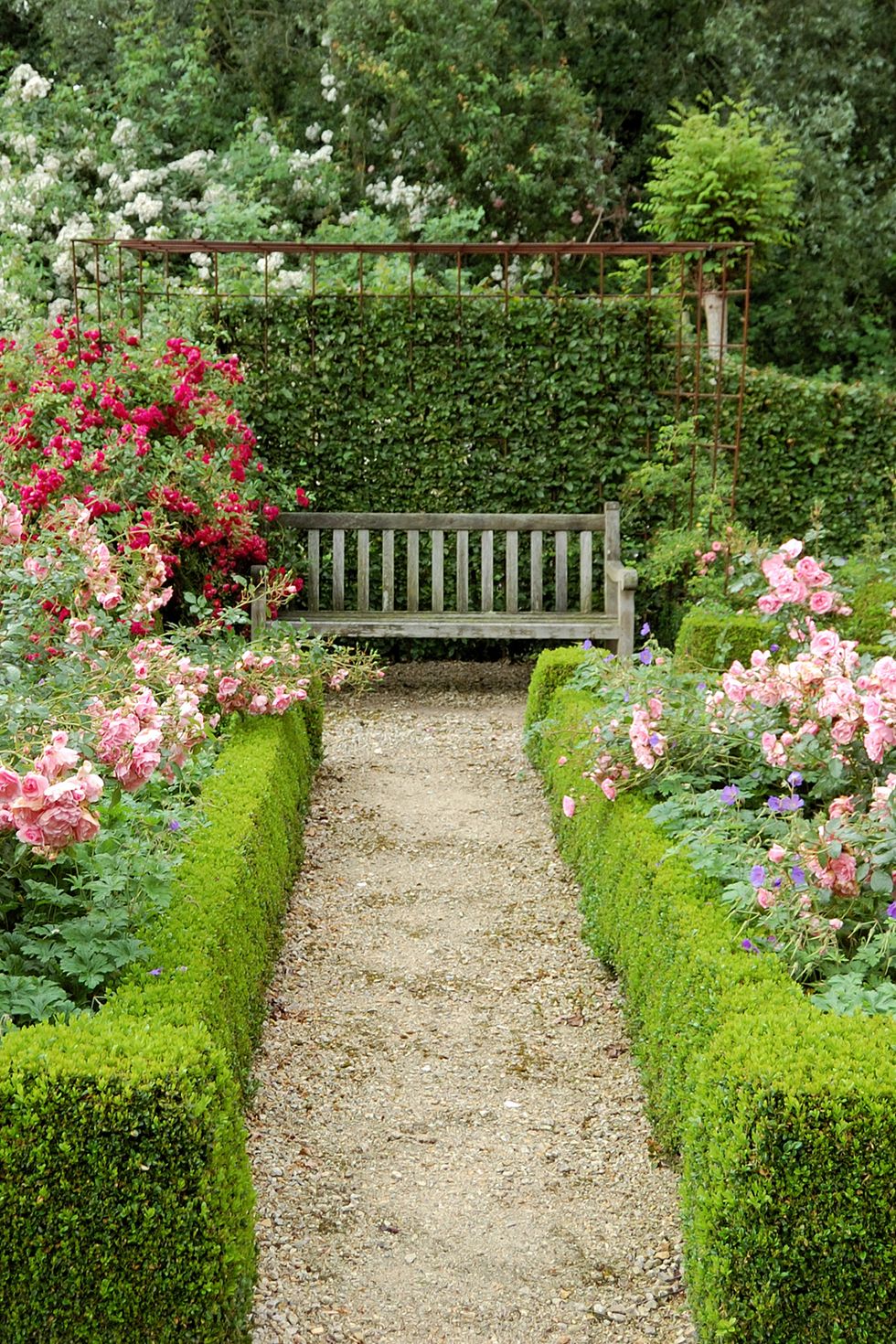 Getty Images
Getty ImagesLarge, well-trimmed bushes work well for dividing spaces, creating paths, acting as walls, and even for separating various parts of the garden. This will give you even more areas to fill with plants to enjoy. If you like, you can even create separate areas for entertaining friends and family.
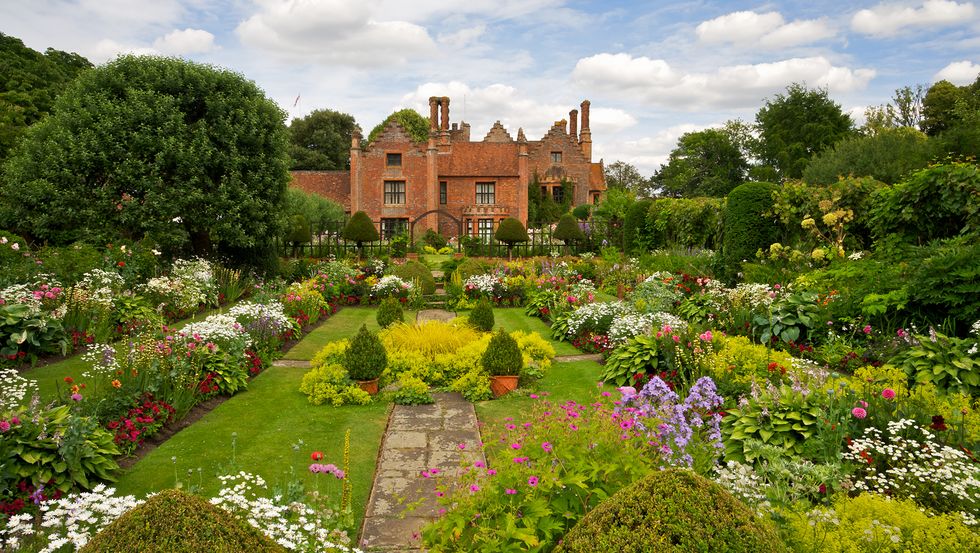 Getty Images
Getty ImagesEnglish gardens aren’t just floral masterpieces, they’re incredibly architectural, as well. Map out your garden with plenty of squares and circles to create a sense of busy space.
Advertisement – Continue Reading Below
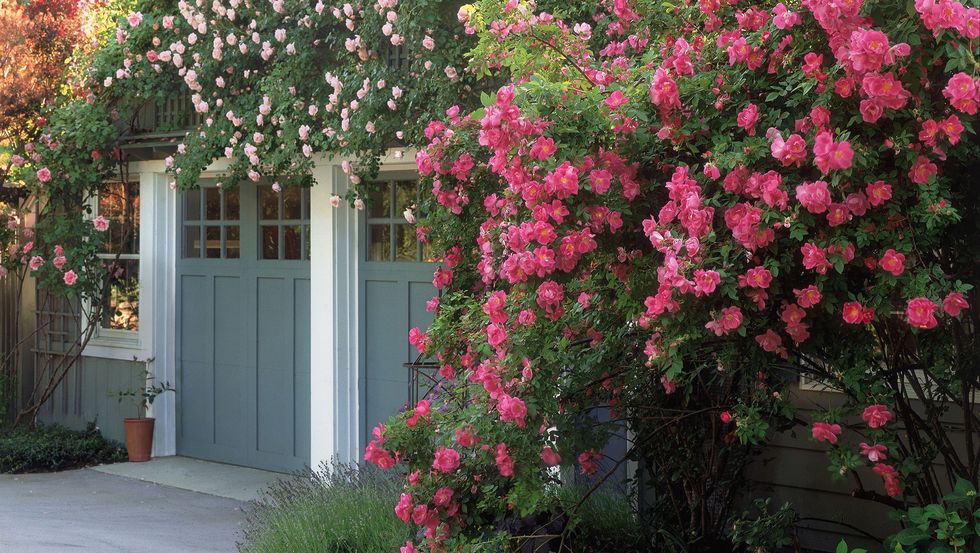 Lisa Hubbard
Lisa HubbardAvoid the temptation to snap up every variety that catches your eye. You can achieve a lavish look like this with just two types of climbing rose: ‘William Baffin’ and ‘New Dawn.’ The bottom line: You only need to plant a few kinds of things, but do it in big sweeps.
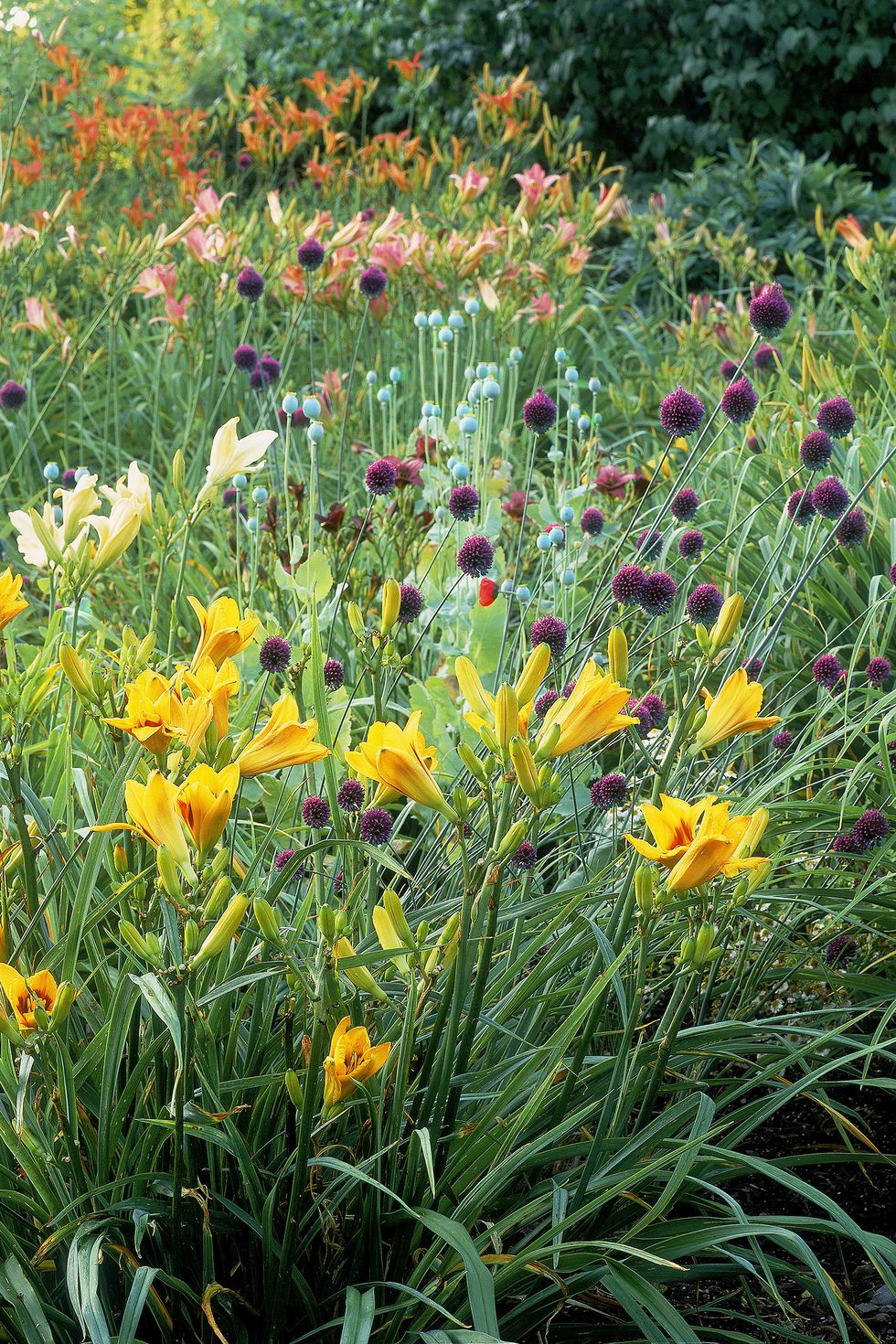 Lisa Hubbard
Lisa HubbardWhile citrus-hued daylilies are already pretty splashy on their own, buck conventional wisdom by pairing them with alliums in equally assertive but seemingly contradictory shades of purple—to brilliant result. Color is particularly important where you don’t have structure.
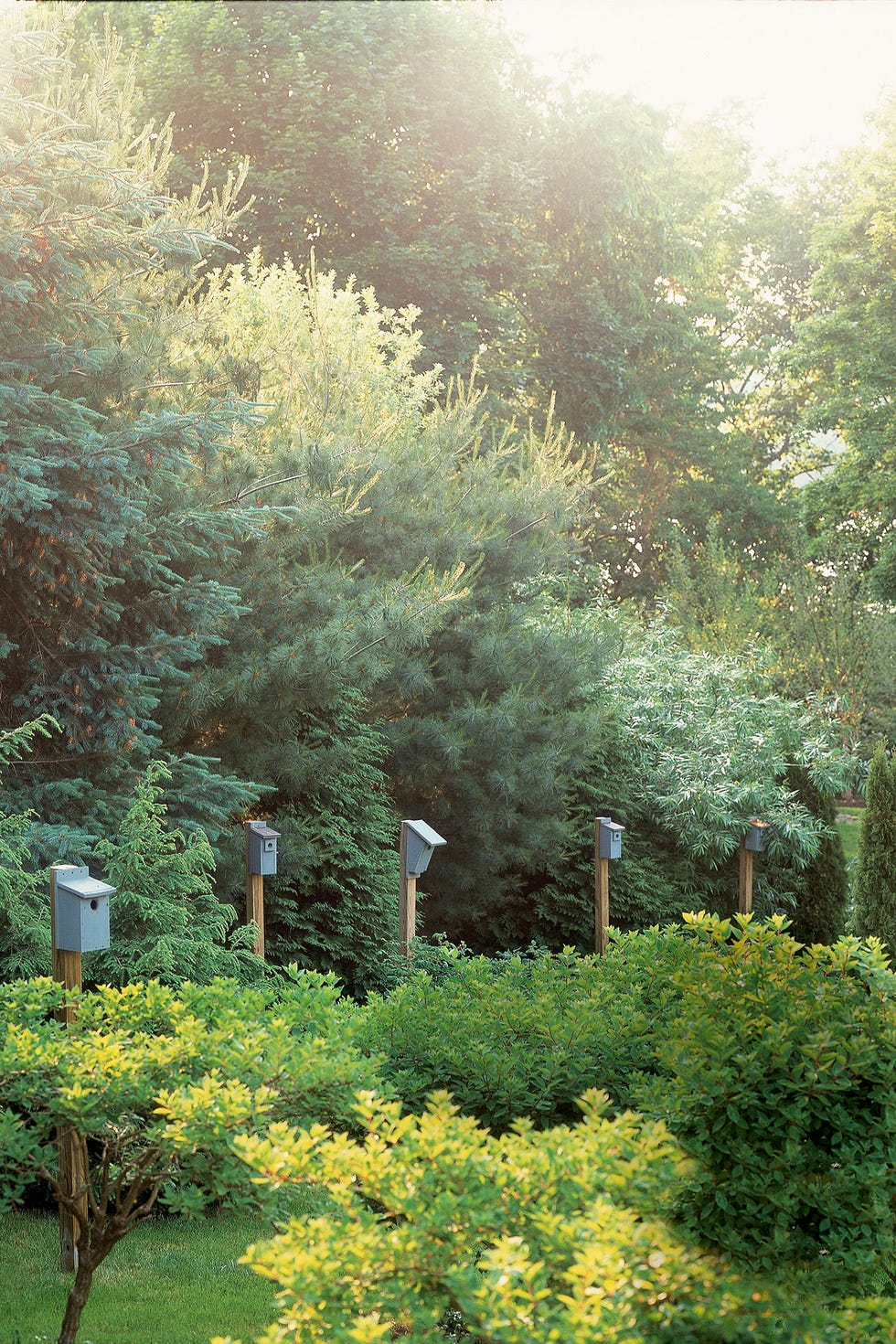 Lisa Hubbard
Lisa HubbardThe couple who own the garden pictured initially installed one of these quaint shelters to attract bluebirds, only to see it occupied by swallows. So they tried another…and another…and wound up with an unintended benefit: The line of roosts provides the suggestion of a garden wall.
Advertisement – Continue Reading Below
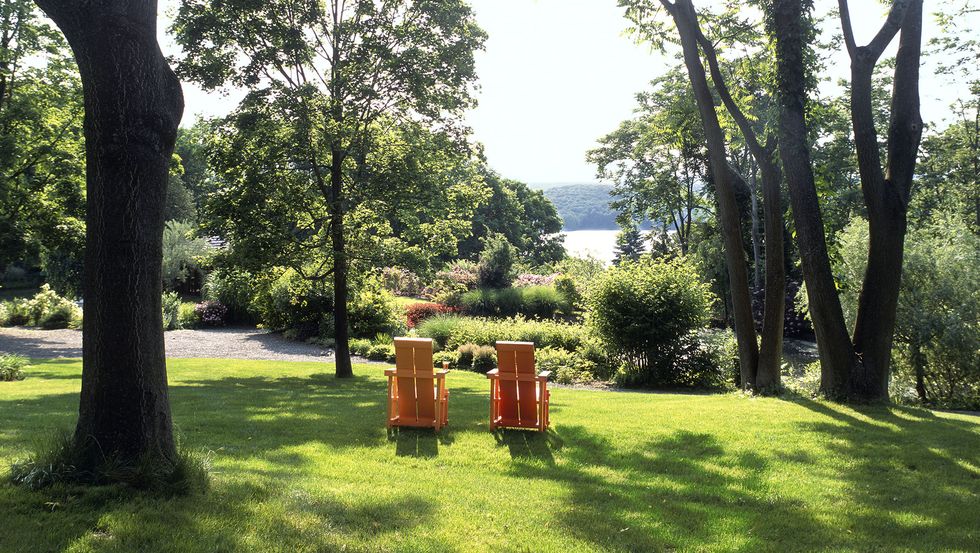 Lisa Hubbard
Lisa HubbardInstead of the usual grays, greens, and blacks, choose hot, bold hues for outdoor chairs. The result: a stunning focal point that draws attention to the view beyond.
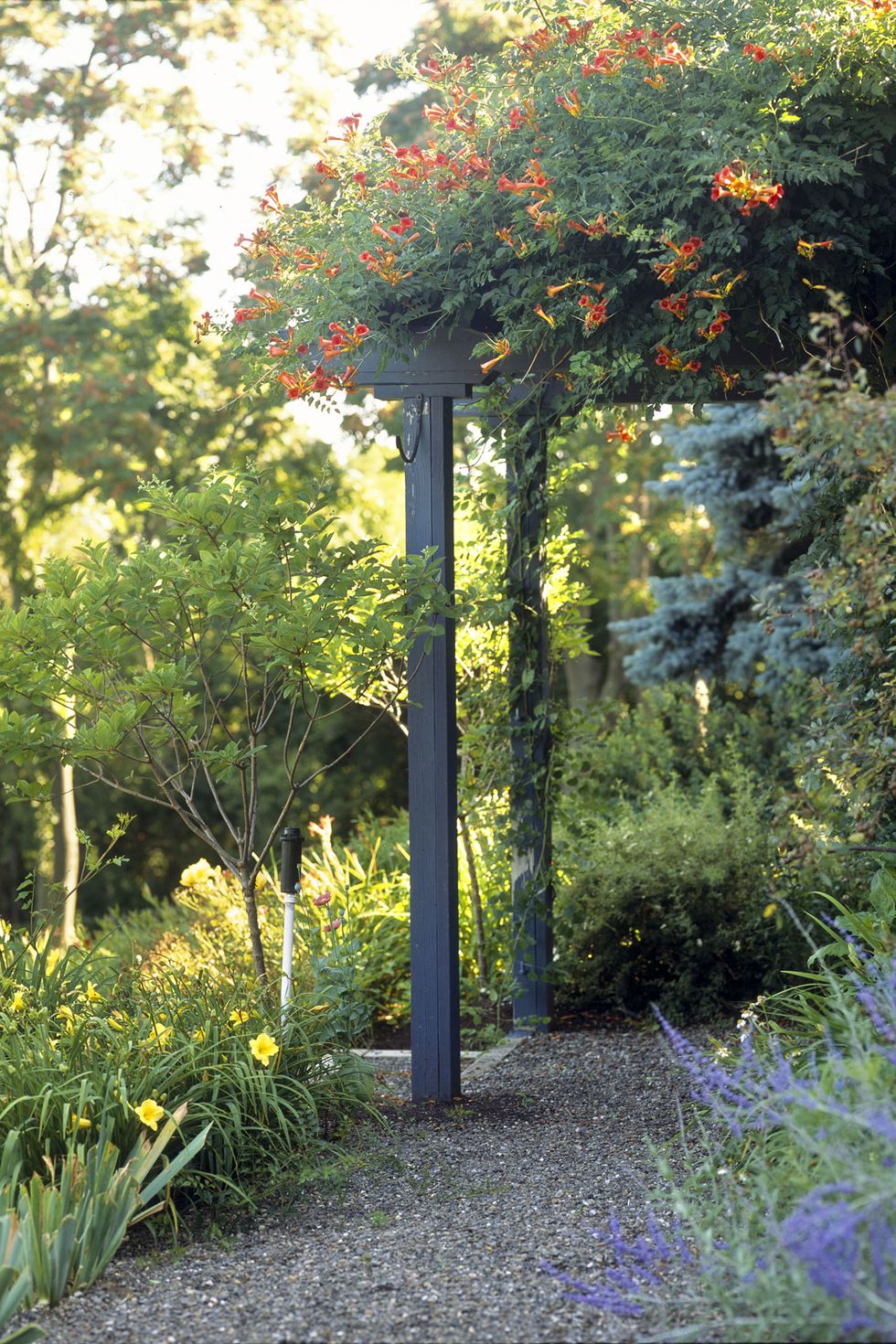 Lisa Hubbard
Lisa HubbardDoes your bedroom overlook an arbor? Try planting a trumpet vine at each of an arbor structure’s six posts. It will look like the vines are floating in the air from a second-story window, plus they bloom from July to the first frost.
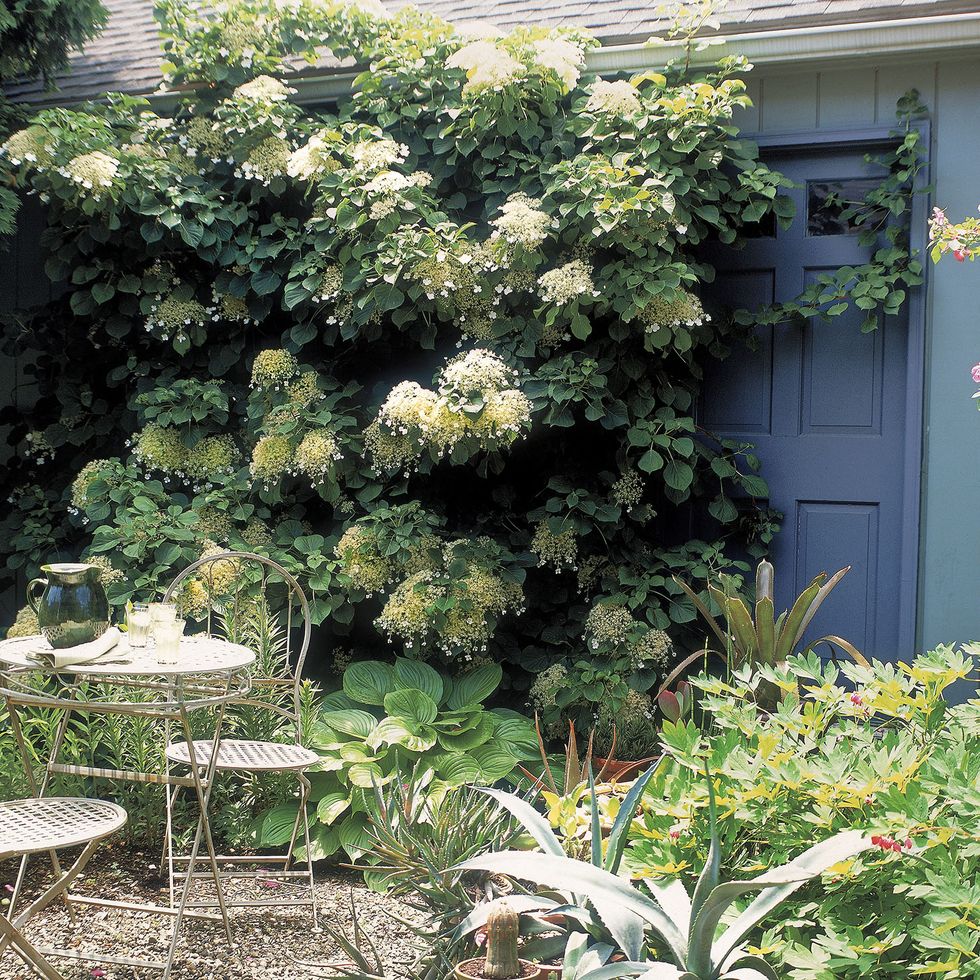 Lissa Hubbard
Lissa HubbardEmbrace an area with a collision of light and shadows to create a cozy dining area. Hydrangea petiolaris thrives in the shade provided by a north-facing potting shed wall, while desert agaves soak up the bright daytime light.


